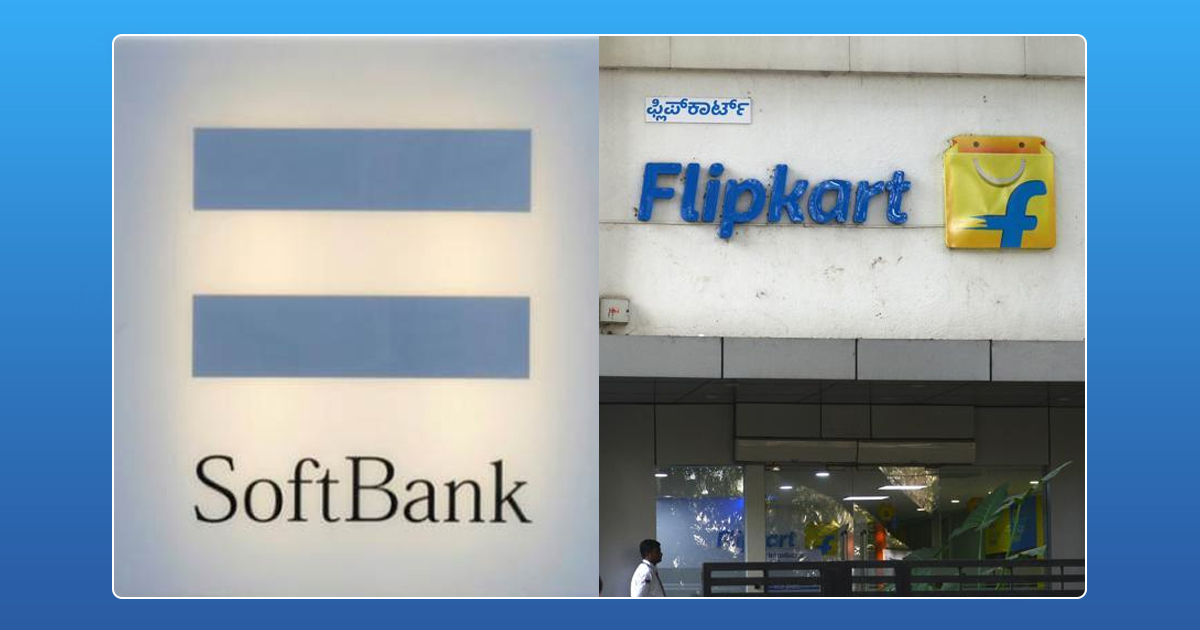Latest News
SoftBank To Buy More Flipkart Shares At A Reduced Valuation

SoftBank, the Masayoshi Son led venture capital firm, offered to buy out more of Flipkart’s shares. The Japanese firm is offering $ 85 to $ 89 per share to investors and former and existing employees of Flipkart.
However, the current price SoftBank is offering for the shares will value the ecommerce company at $ 10 billion, which is lower than its existing $ 11.6 billion valuation. SoftBank’s $ 1.4 billion investment in Flipkart along with the second round of investment from Microsoft, eBay and Tencent Holdings Ltd., in April helped the ecommerce firm secure the $ 11 billion valuation.
SoftBank’s investment gave Flipkart the firepower to compete with Amazon in an all out battle to capture the Indian ecommerce industry. Last week, Tiger Global Management sold 10% of its stake in Flipkart worth $ 600 million to $ 700 million to SoftBank. According to a news daily, Accel, IDG Ventures, Kalaari Capital and some other investors may also sell their shares to the venture capital firm. The sale of these shares will be managed by investment bank Goldman Sachs. Sources close to the development said the shares sale is likely to be completed by the end of December 2017.
In November this year, mutual fund investor Valic Co., marked down the valuation of Flipkart to $ 7.9 billion from $ 11 billion. Sources close to the development said the trimming was an indication that some of the smaller investors of Flipkart were divided over its previous valuation. Nevertheless, the mutual fund investor Morgan Stanley marked up the valuation of the ecommerce behemoth to $ 9.36 billion for the September quarter. The global financing services provider has previously marked down Flipkart’s valuation for five consecutive quarters. Although the current valuation is still considerably lower than the valuation at which Flipkart raised funds, the mark up can be seen as a major victory for the ecommerce firm.
According to a report by Morgan Stanley, India will be the world’s 3rd largest economy with a Gross Domestic Product (GDP) of $ 6 trillion in the next 10 years. The report further added, the Indian ecommerce market will touch the $ 200 billion mark by 2027.
Latest News
Kuku FM’s $200 Million IPO: Mebigo Labs Hires Top Bankers to Lead Public Listing

Kuku FM’s parent company, Mebigo Labs, has hired leading investment banks to prepare for a 200 million dollar IPO in India, marking a major milestone for the country’s digital audio ecosystem. The Mumbai-based company has reportedly appointed Kotak Mahindra Capital, Axis Bank and Morgan Stanley’s India unit to manage the proposed share sale, which is likely to be launched on Indian stock exchanges once key regulatory steps are completed. This move signals strong intent to tap public markets and test investor appetite for subscription-led regional audio platforms in India.
The planned IPO proceeds are expected to help Kuku FM expand its content library, strengthen its regional language offerings and invest in technology to enhance user experience. With a focus on Hindi, Marathi, Tamil and other Indian languages, Kuku FM aims to capture the fast-growing audience in Tier 2 and Tier 3 cities seeking affordable audiobooks, courses and storytelling content. The funds could also provide additional firepower for marketing, partnerships and product innovation, helping the platform compete more aggressively in India’s crowded digital entertainment and creator economy landscape.
Founded in 2018, Kuku FM has built a subscription-driven business model and has reportedly scaled to millions of paying users, backed by multiple funding rounds from prominent investors. Its decision to pursue a 200 million dollar IPO positions it as one of the first major Indian audio platforms to attempt a public listing, potentially paving the way for other podcast and niche content startups to follow. As the IPO process moves forward, Kuku FM’s performance in the public markets will be closely watched as a key indicator of how investors value regional, knowledge-first audio platforms in India’s booming digital economy.
Latest News
Zerodha Reports 23% Profit Decline in FY25 as Revenues Miss Target

Zerodha experienced a challenging FY25, as its revenue fell 11.5% to ₹8,847 crore and net profit dropped 22.9% to ₹4,237 crore. This decline reflects tougher regulatory conditions, lower trading volumes, and increased operational costs in the brokerage market, all of which impacted core earning segments for the company.
Despite these headwinds, Zerodha improved its operating margin to 63.78% and built up significant cash reserves, reporting ₹22,679 crore in bank balances. Salary expenses and director remuneration increased, but disciplined cost controls helped the company maintain profitability and a debt-free balance sheet. The drop in active clients and increased compliance costs further contributed to the profit contraction.
Looking ahead, Zerodha’s resilience is supported by its robust cash position and operational efficiency. Maintaining steady margins, diversifying product offerings, and investing in technology positions the company to withstand future regulatory fluctuations and changing market sentiment reinforcing its status as one of India’s leading brokerage firms.
Latest News
Zoho Pay Debuts as India’s New UPI Challenger, Taking on PhonePe, Paytm, and Google Pay

Zoho Corporation has expanded its fintech portfolio with the launch of Zoho Pay, a UPI-based payments app built to challenge India’s top digital payment giants such as PhonePe, Paytm, and Google Pay. The new app supports peer-to-peer transfers, bill payments, QR-based transactions, and merchant settlements in a streamlined interface. Available as both a standalone app and an integrated feature inside Zoho’s privacy-driven messenger Arattai, Zoho Pay enables users to handle chats and payments in one platform, emphasizing data privacy and Made-in-India innovation.
Through seamless integration with Arattai, Zoho Pay allows users to send or request payments, split expenses, and conduct UPI-based transactions directly in their chat windows. Users can link bank accounts, scan dynamic QR codes, and receive audio confirmations of payments, ensuring speed and security. This design mirrors the simplicity of India’s leading UPI apps but is powered by Zoho’s non-advertising, privacy-first model. The integration aligns with Zoho’s mission to build a self-reliant digital ecosystem, where messaging and money management coexist securely.
In the competitive digital payments market, Zoho Pay differentiates itself through its tight business software integration with apps like Zoho Books, Zoho Payroll, and Zoho Commerce, offering small businesses unified access to payments, billing, and accounting. The company is also expanding its reach with POS devices for merchants featuring UPI QR, card payments, and instant reconciliation tools. With founder Sridhar Vembu’s vision of a ‘Chat + Pay’ ecosystem, Zoho Pay reflects a bold step toward redefining India’s fintech scene with a secure, ad-free, and locally developed alternative to global payment platforms.












GO88
November 5, 2025 at 11:03 am
Tham gia cộng đồng game thủ tại Go88 để trải nghiệm các trò chơi bài, poker phổ biến nhất hiện nay.
iwin
November 7, 2025 at 6:14 am
iwin – nền tảng game bài đổi thưởng uy tín, nơi bạn có thể thử vận may và tận hưởng nhiều tựa game hấp
站群程序
November 7, 2025 at 6:18 am
搭载智能站群程序,自动化搭建与管理,为SEO项目提供核心驱动力。站群程序
Kuwin
November 9, 2025 at 4:09 pm
kuwin sở hữu kho game đa dạng từ slot đến trò chơi bài đổi thưởng, mang đến cho bạn những giây phút giải trí tuyệt vời.
ios超级签
November 12, 2025 at 2:06 am
苹果签名,苹果超级签平台,ios超级签平台ios超级签苹果企业签,苹果超级签,稳定超级签名
J88
November 23, 2025 at 9:31 am
Đến với J88, bạn sẽ được trải nghiệm dịch vụ cá cược chuyên nghiệp cùng hàng ngàn sự kiện khuyến mãi độc quyền.
online Gambling
December 19, 2025 at 1:58 am
online Gambling online Gambling